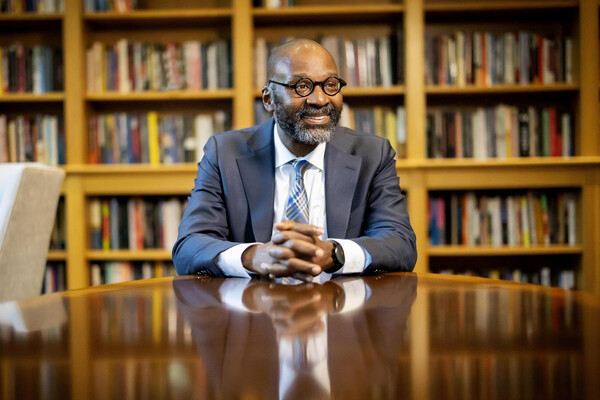
Griffin Pitt, right, works with two other student researchers to test the conductivity, total dissolved solids, salinity, and temperature of water below a sand dam in Kenya.
(Image: Courtesy of Griffin Pitt)
PHILADELPHIA — Four University of Pennsylvania faculty members are among this year’s Sloan Fellowship recipients. Since 1955, the Alfred P. Sloan Foundation has granted yearly fellowships to early-career scientists and scholars whose achievements and potential identify them the next generation of scientific leaders.
To qualify, candidates must be nominated by their peers and selected by an independent panel of senior scholars. Each Fellow receives a two-year, $50,000 award to further his or her research.
Penn’s 2012 Sloan Fellows are:
• Christopher Fang-Yen, assistant professor of bioengineering, School of Engineering and Applied Science, and assistant professor of neuroscience, Perelman School of Medicine — Fang-Yen’s laboratory uses optical and genetic tools to study the neurobiology of a millimeter-long worm known as C. elegans. With only a few hundred neurons and a transparent body, this worm is an ideal model for researching how neural circuitry generates behavior.
• E. James Petersson, assistant professor of chemistry, School of Arts and Sciences — Petersson takes a multidisciplinary approach to studying how proteins change shape; misfolding into the incorrect shape can cause proteins to clump, causing neurodegenerative diseases, such as Alzheimer's and Parkinson's diseases. The Petersson laboratory develops novel probes to study protein shape in vitro and in living cells in order to understand these folding motions in molecular detail.
• Joseph Subotnik, assistant professor physical and theoretical chemistry, School of Arts and Sciences — Subotnik examines chemistry both at the level of individual electrons and large molecules, seeking to understand how energy is transferred in a chemical reaction, how long that energy lasts before it is lost to friction and how scientists can best control and manipulate that energy for future energy production.
• Benjamin F. Voight, assistant professor of pharmacology, Perelman School of Medicine — As a geneticist and computational biologist, Voight’s research involves constructing and applying statistical methods to genomics data collected across thousands of human genomes, with the aim of uncovering how genetic variation contributes to the diverse set of traits evolved during recent human history and to the range of diseases present today. His work has identified risk-related alleles for type-2 diabetes and heart attack, among other conditions, and hundreds of regions of the human genome experiencing recent positive selection.
Evan Lerner

Griffin Pitt, right, works with two other student researchers to test the conductivity, total dissolved solids, salinity, and temperature of water below a sand dam in Kenya.
(Image: Courtesy of Griffin Pitt)

Image: Andriy Onufriyenko via Getty Images

nocred

Provost John L. Jackson Jr.
nocred